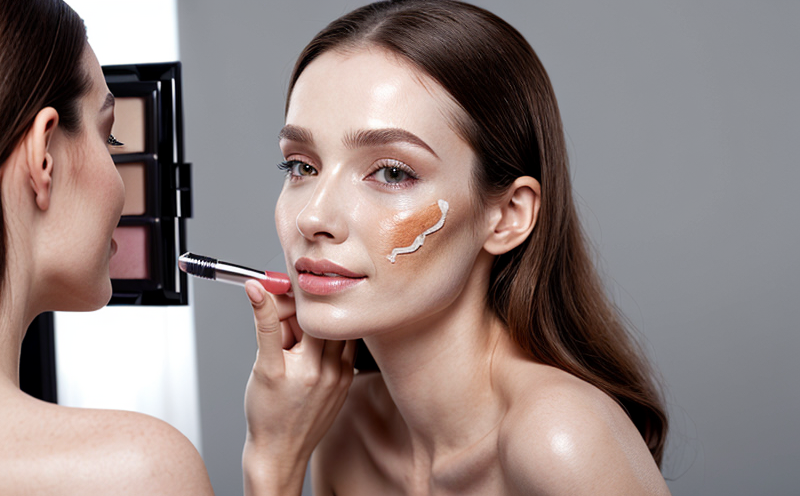Dermatological Tolerance Testing in Sensitive Skin Cosmetics
In today’s fast-paced and increasingly competitive cosmetics market, ensuring product safety is paramount. Dermatological tolerance testing of sensitive skin cosmetics plays a crucial role in confirming that products are free from allergens and irritants, thus safeguarding consumer health and wellbeing.
Sensitive skin presents unique challenges for cosmetic formulators and manufacturers, requiring specialized testing protocols to evaluate the potential for adverse reactions such as irritation, inflammation, or allergic contact dermatitis. This type of testing not only helps meet regulatory requirements but also enhances brand reputation by demonstrating a commitment to consumer safety.
The primary aim of this testing is to determine whether a cosmetic product can be used safely on individuals with sensitive skin types without causing any adverse effects. The tests are conducted under controlled conditions that mimic real-world usage scenarios, allowing for accurate assessment of the product's tolerance levels.
A typical sensitivity test involves applying small amounts of the cosmetic formulation to areas of the subject’s body known for being more prone to reactions (such as the inner forearm or back). The application is followed by a waiting period during which any signs of redness, swelling, itching, or other symptoms indicative of an adverse reaction are closely monitored.
| Industry Application | Description |
|---|---|
| Cosmetics Development | Testing new formulations to ensure they are safe for sensitive skin types. |
| Formulation Optimization | Identifying ingredients that may cause irritation and adjusting recipes accordingly. |
| Product Launch Planning | Evaluating potential risks before the product hits the market to avoid recalls or safety issues. |
In addition to these applications, dermatological tolerance testing serves as a critical tool for quality assurance and compliance with international standards such as ISO 21029-1:2018 which provides guidance on in vitro methods for predicting the skin irritation potential of chemicals.
- Ensures regulatory compliance
- Reduces product recalls due to adverse reactions
- Promotes brand loyalty and trust among consumers
- Facilitates smoother market entry in various regions with different regulations
Benefits
- Enhances product safety
- Avoids potential legal issues
- Promotes consumer trust and loyalty
- Facilitates smoother market entry in various regions
Eurolab Advantages
At Eurolab, we pride ourselves on offering comprehensive dermatological tolerance testing services tailored specifically for sensitive skin cosmetics. Our state-of-the-art facilities and experienced team ensure that every test is conducted rigorously following internationally recognized standards.
We leverage advanced technologies to provide accurate results efficiently, minimizing turnaround times without compromising on quality. With our expertise in both traditional methods and cutting-edge alternatives like in vitro testing, we offer flexibility depending on your needs.





